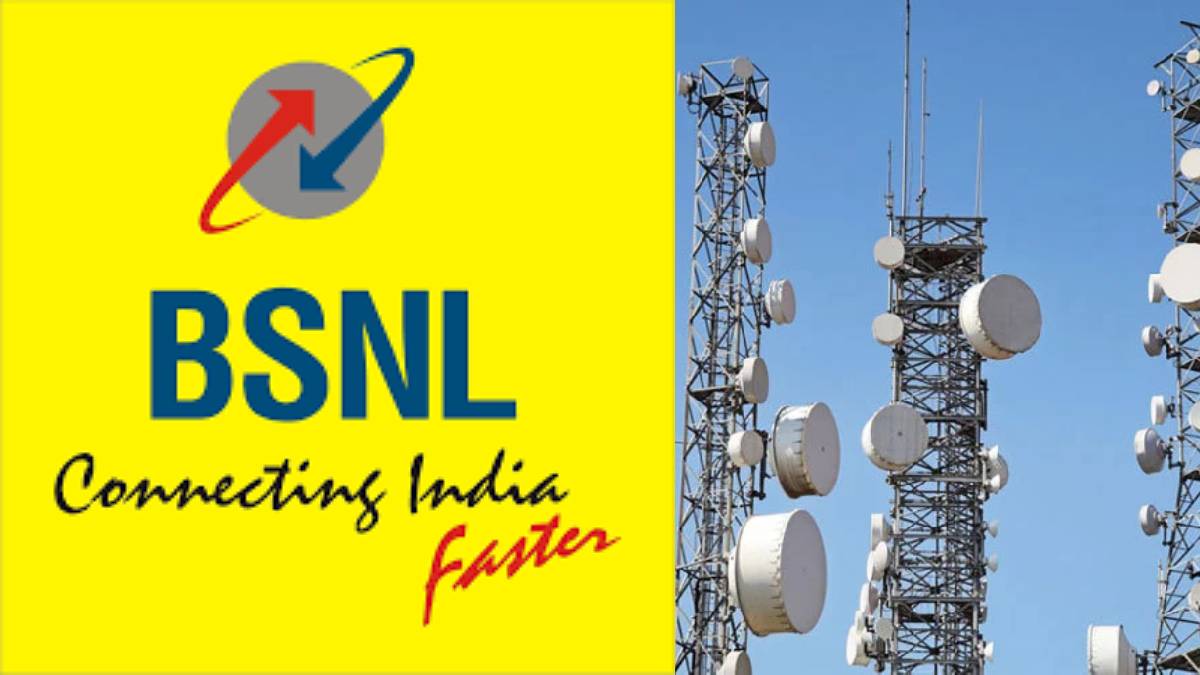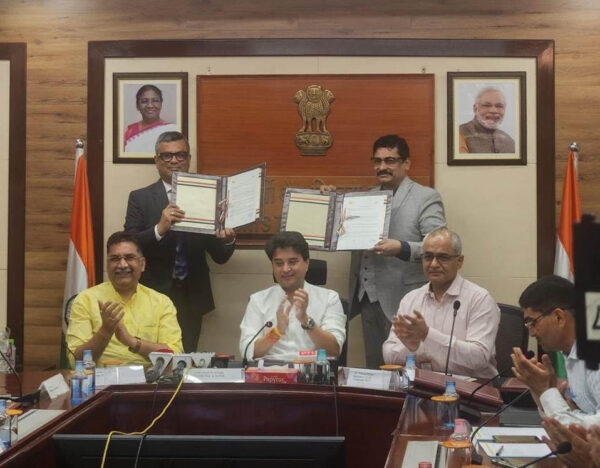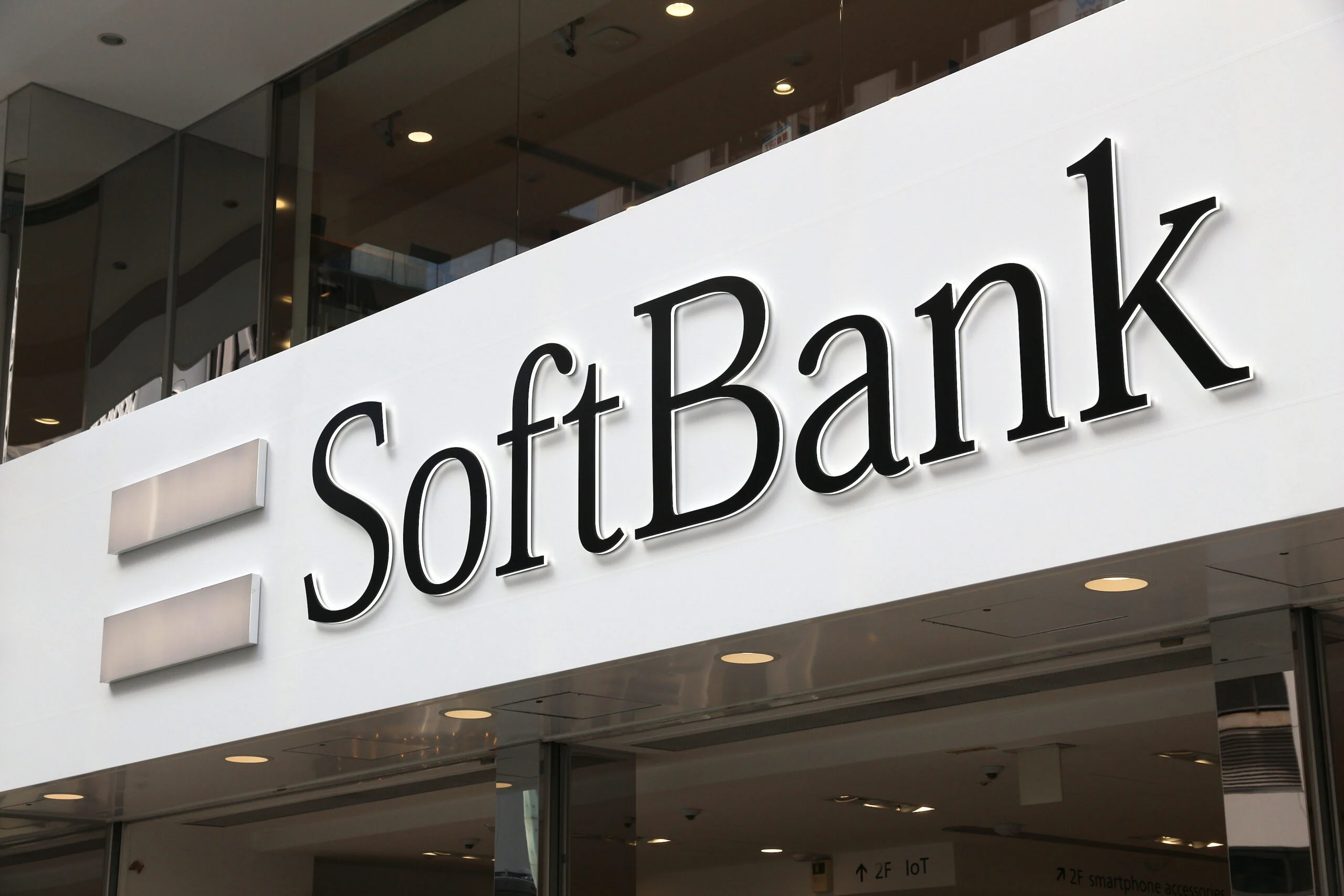Introduction The BSNL global alliances 5G initiative is a game-changer for India’s telecom sector. By collaborating with global giants such as Ericsson, Nokia, Cisco, and Qualcomm, Bharat Sanchar Nigam Limited (BSNL) prepares to turn Jabalpur, Madhya Pradesh, into a hub for 5G and AI innovation. This move is not just about catching up with private …
BSNL’s Global Tech Alliances Put Jabalpur at the Heart of India’s 5G Future

Introduction
The BSNL global alliances 5G initiative is a game-changer for India’s telecom sector. By collaborating with global giants such as Ericsson, Nokia, Cisco, and Qualcomm, Bharat Sanchar Nigam Limited (BSNL) prepares to turn Jabalpur, Madhya Pradesh, into a hub for 5G and AI innovation.
This move is not just about catching up with private operators like Jio and Airtel. It’s a powerful step toward digital inclusion, ensuring India’s telecom backbone is strengthened with world-class partnerships while aligning with the government’s Digital India and Atmanirbhar Bharat vision.
What the BSNL Global Alliances 5G Initiative Means
The project brings three strategic benefits:
Network Modernization – Upgrading BSNL’s outdated systems to roll out 5G efficiently.
AI Integration – Leveraging artificial intelligence for smarter, self-learning telecom networks.
Regional Growth – Making Jabalpur the hub decentralizes India’s innovation map, creating opportunities beyond metro cities.
By combining global expertise with domestic infrastructure, the BSNL global alliances 5G project puts India on track for a smarter and more connected future.
Why Jabalpur?
BSNL’s decision to choose Jabalpur is intentional. Already home to key BSNL training facilities, Jabalpur provides a skilled workforce and institutional backbone. By positioning Jabalpur as a national 5G and AI hub, BSNL is ensuring that smaller cities benefit from cutting-edge technologies.
This decentralization reflects India’s broader Digital India program, which emphasizes equitable access to next-generation technologies across all regions.

The Role of Global Partners in the BSNL Global Alliances 5G Project
Each partner brings a unique strength:
- Ericsson & Nokia: Advanced 5G radio equipment and deployment expertise.
- Qualcomm: Chipset and R&D capabilities for faster network adoption.
- Cisco Systems: Secure networking and cloud solutions to support AI-driven telecom.
Together, these collaborations aim to reduce India’s reliance on imports while aligning with Make in India and Atmanirbhar Bharat initiatives.
Implications for India’s Digital Future
The BSNL global alliances 5G project will impact multiple sectors:
- Healthcare: Telemedicine powered by 5G can reach remote villages.
- Education: Online learning platforms will function seamlessly even in low-connectivity zones.
- Industry 4.0: Factories will adopt IoT and automation with minimal lag.
- Smart Cities: AI-driven infrastructure, from traffic management to security, will become a reality.
By combining 5G with AI, BSNL ensures India’s growth is not just fast but also smart, sustainable, and inclusive.
Comparing India’s Approach With Global Strategies
Other countries have also leaned heavily on state-backed telecom projects.
China Mobile and Huawei built the world’s largest 5G network with government support.
South Korea’s 5G push enabled autonomous vehicle testing and smart city pilots.
The U.S., by contrast, relies on private competition through AT&T and Verizon.
In comparison, the BSNL global alliances 5G model is hybrid—leveraging international expertise while being backed by government support.
Challenges Ahead
Despite the optimism, the BSNL global alliances 5G project will face hurdles that need careful planning:
Rollout Delays – BSNL has traditionally lagged behind private operators in adopting new technology. With Jio and Airtel already offering 5G in major cities, BSNL must act quickly to avoid being left behind.
Funding Gaps – Large-scale 5G rollouts cost billions of dollars. While government support is crucial, attracting private investment and maintaining financial sustainability will be equally important.
Execution Risks – Coordinating multiple international partners, each with their own strategies and standards, could slow down decision-making. Clear governance models will be essential.
Consumer Adoption – Even with networks in place, India’s affordability challenge remains. Low-cost 5G devices and affordable data plans will be critical for mass adoption.
Future Outlook
Looking ahead, the BSNL global alliances 5G initiative is not just about faster networks—it is about empowering India’s digital economy. By combining 5G with AI, BSNL is laying the foundation for:
Digital Governance – Faster, more reliable networks will help government services reach citizens directly, improving transparency and efficiency.
Start-up Ecosystem Growth – Jabalpur’s transformation into a tech hub could inspire a new wave of telecom and AI start-ups that support BSNL’s ecosystem.
6G Readiness – As nations like Japan and South Korea begin experimenting with 6G concepts, India’s work with global partners ensures it won’t be left behind in the next telecom revolution.
If executed well, this initiative could redefine BSNL’s role from being just a service provider to becoming a catalyst for innovation in India’s digital future.
Conclusion
The BSNL global alliances 5G project is a transformative step for India’s telecom journey. By making Jabalpur a 5G and AI hub, BSNL is not only modernizing its own systems but also driving inclusive growth.
With support from global partners, this initiative has the potential to position India as a leader in digital connectivity, impacting healthcare, education, and industry. If executed well, BSNL’s alliances could redefine India’s role in the global telecom race.
Subscribe to Our Newsletter
Keep in touch with our news & offers
Thank you for subscribing to the newsletter.
Oops. Something went wrong. Please try again later.






